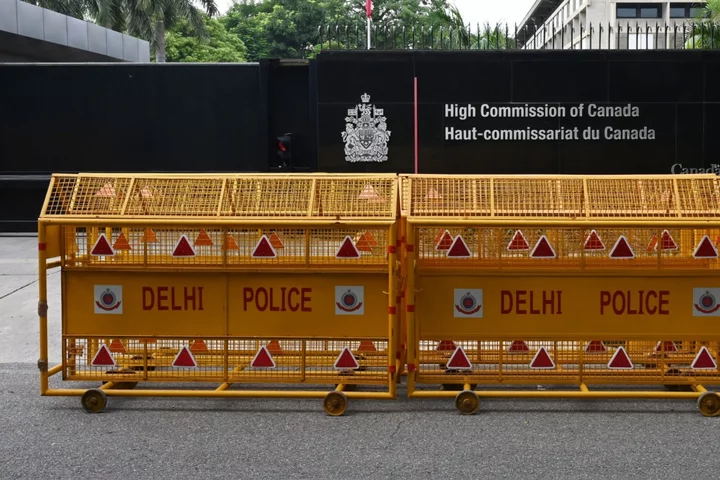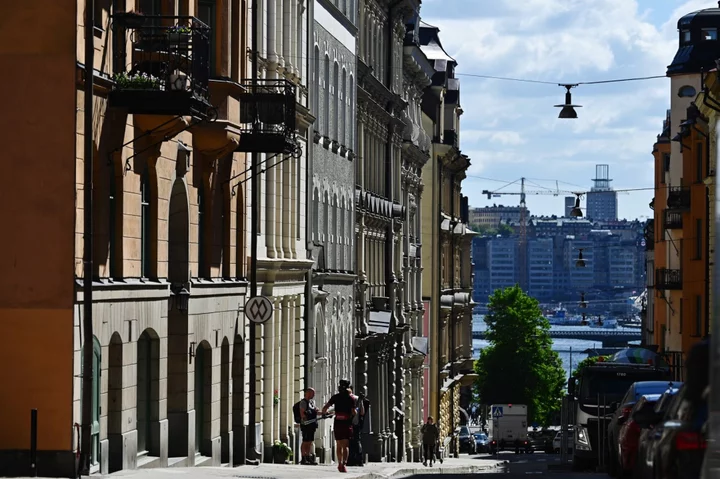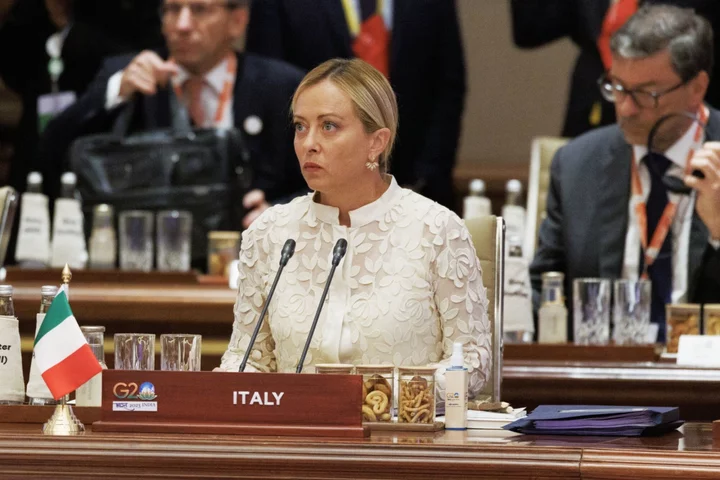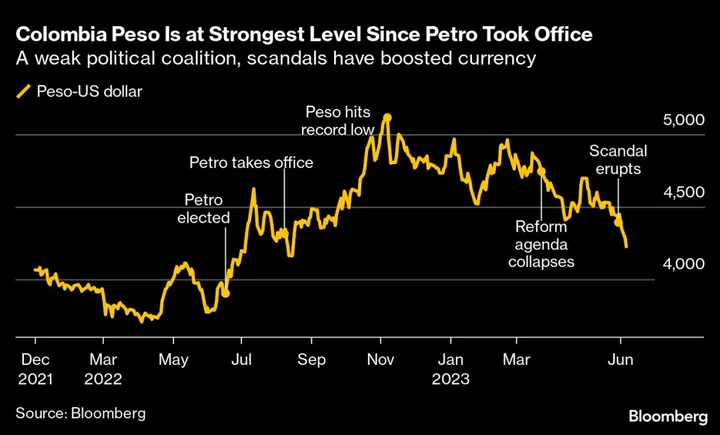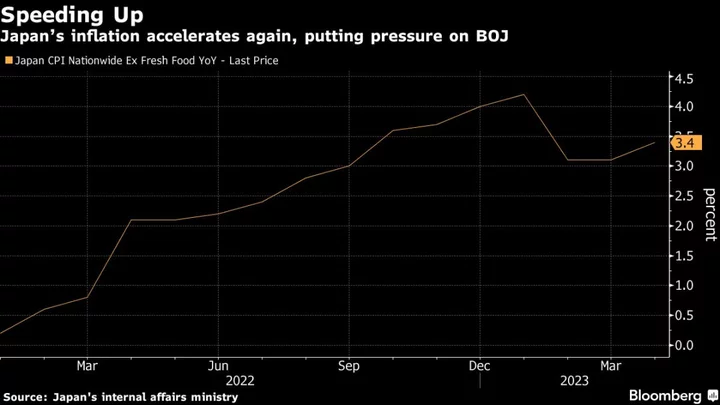Dozens of Canadian diplomats left India after New Delhi threatened to revoke their immunity in an “unreasonable and escalatory” violation of international law, Foreign Affairs Minister Melanie Joly said, as ties between the US allies remain tense.
Canada relocated 41 staff from its embassy and consulates in the South Asian country, leaving 21 behind, Joly said Thursday in Ottawa. It’s the latest development in a diplomatic row that erupted last month when Prime Minister Justin Trudeau said there was “credible” evidence India’s government helped orchestrate the killing of Sikh activist Hardeep Singh Nijjar on Canadian soil.
The developments infuriated Indian Prime Minister Narendra Modi’s government, which called the allegation “absurd” and retaliated with several measures including a suspension of visas for Canadians. Joly said New Delhi conveyed its plans to strip diplomatic immunity from the envoys by Friday, putting their personal safety at risk — a decision Canada wouldn’t reciprocate with Indian diplomats.
“Immunities allow diplomats to do their work without fear of reprisal or arrest from the country,” Joly said. “If we allow the norm of diplomatic immunity to be broken, no diplomats anywhere on the planet would be safe.”
The Ministry of External Affairs in India didn’t respond to a request for comment.
India requested Ottawa to reduce its diplomatic presence and make it equal to the number of Indians who have diplomatic immunity in Canada. The Canadian government hoped to negotiate a different outcome: Joly said earlier this month that in moments of tension, having diplomats on the ground was more important than ever.
The diplomatic spat has put the US in an awkward position. Washington spent years courting Modi as part of an Indo-Pacific strategy to halt China’s economic and military expansion. But the US also shares close ties with Canada, a Group of Seven country and a member of the Five Eyes intelligence-sharing alliance.
A top Canadian navy official said this week there’s no sign the diplomatic standoff has affected military-to-military cooperation. The Commander of Canadian Fleet Pacific, Commodore David Mazur, said he held “friendly meetings” with Indian officials on the sidelines of a maritime conference in Sri Lanka last week.
Less Service
Joly said on Thursday that unilaterally removing immunity is a violation of the Vienna convention on diplomatic relations.
With fewer diplomatic staff, there will be less service from Canada’s offices in India and slower processing times for its visa and immigration. Joly said Canada must pause all in-person services at its consulates in Chandigarh, Mumbai and Bangalore, but those who need consular assistance can still reach out by email or phone or visit the embassy in New Delhi.
India was the top source of permanent residents, temporary foreign workers and international students in Canada last year. Immigration Minister Marc Miller said Canada would continue to welcome Indian immigrants, but the reduced number of staff would mean slower processing of visa applications, at least in the short to medium term.
In a background briefing with reporters, a Canadian government official said the immigration and visa program would be “severely curtailed.”
The reduction in staff would mean a backlog of 17,500 application decisions through the end of December, though it’s hoped processing will return to normal by early 2024, another official said. They spoke on condition they not be identified by name.
(Updates with write through, context)

